The Fight Against Period Poverty
Period poverty is a serious injustice all over the world affecting those who don’t have access to the safe, hygienic period products they need, and who are unable to manage their periods with dignity, placing a huge burden on those already facing socio-economic challenges.
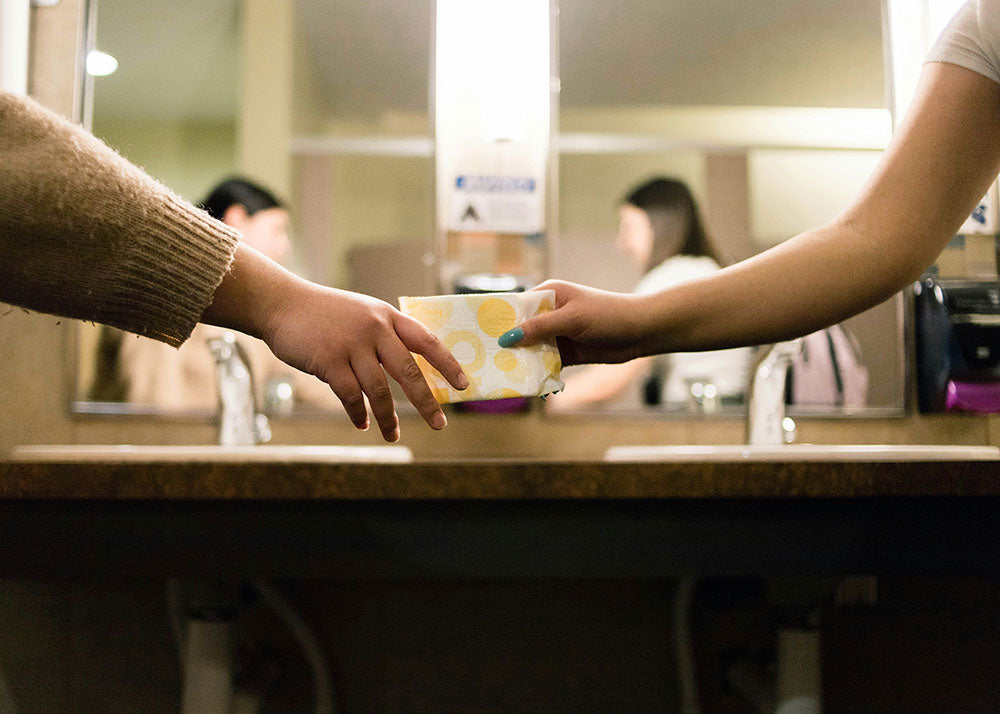
Period poverty, once a silent and overlooked issue, has emerged into the spotlight as a critical social and health concern. Historically, there was a naivety surrounding period poverty, stemming from societal taboos and misconceptions about menstruation. This naivety often led to inadequate attention and resources being allocated to address the needs of individuals who menstruate, particularly those facing economic hardship.
In the past, discussions about menstruation were shrouded in stigma and discomfort, leading to a lack of understanding about the challenges individuals faced in accessing menstrual hygiene products. The prevailing notion was that menstrual products were readily available to all who needed them, disregarding the financial barriers that many encountered.
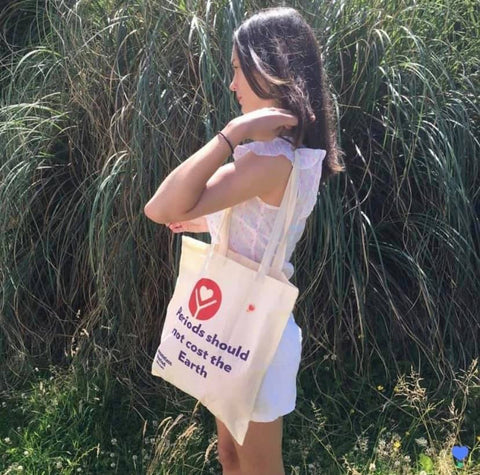
However, as awareness has grown, so too has our understanding of the profound impact of period poverty on individuals and communities. As a society, we're beginning to realise that for many, the inability to afford or access menstrual products not only affects hygiene but also undermines dignity, health, and education.
It’s now finally coming to light that period poverty is a serious societal issue that affects an estimated 500 million menstruating individuals worldwide. While we’re thankful that it’s now becoming more widely spoken about and acted upon, there’s still a huge amount to be done. We’re proud to be part of the fight against period poverty and glad that we can encourage our clients to donate to our charity partners, providing a tangible and positive impact on their own corporate social responsibility initiatives.
Did You Know?
-
 - phs Period Equality Report
- phs Period Equality Report25% of families have found it harder to buy period products over the last year.
-
 - phs Period Equality Report
- phs Period Equality ReportMore girls miss school and college due to their periods than colds.
-
 - Plan International UK
- Plan International UK48% of girls and young menstruators feel embarrassed about their period.
How We're Fighting Period Poverty At Riley
We're working with partners in Ireland, Kenya and the UK and have already provided over 100,000 period products (and counting). We'll continue to sponsor menstrual programmes and donate as much as we possibly can and with these partnerships, we're determined to put an end to period poverty, one menstruator at a time.
1. Development Pamoja
In Kenya period poverty is a huge issue. It is estimated that 50-65% of Kenyan girls don’t have access to proper sanitary products. This is even higher in rural Kenya where the issue of menstruation is taboo in what is still a very paternalistic society.
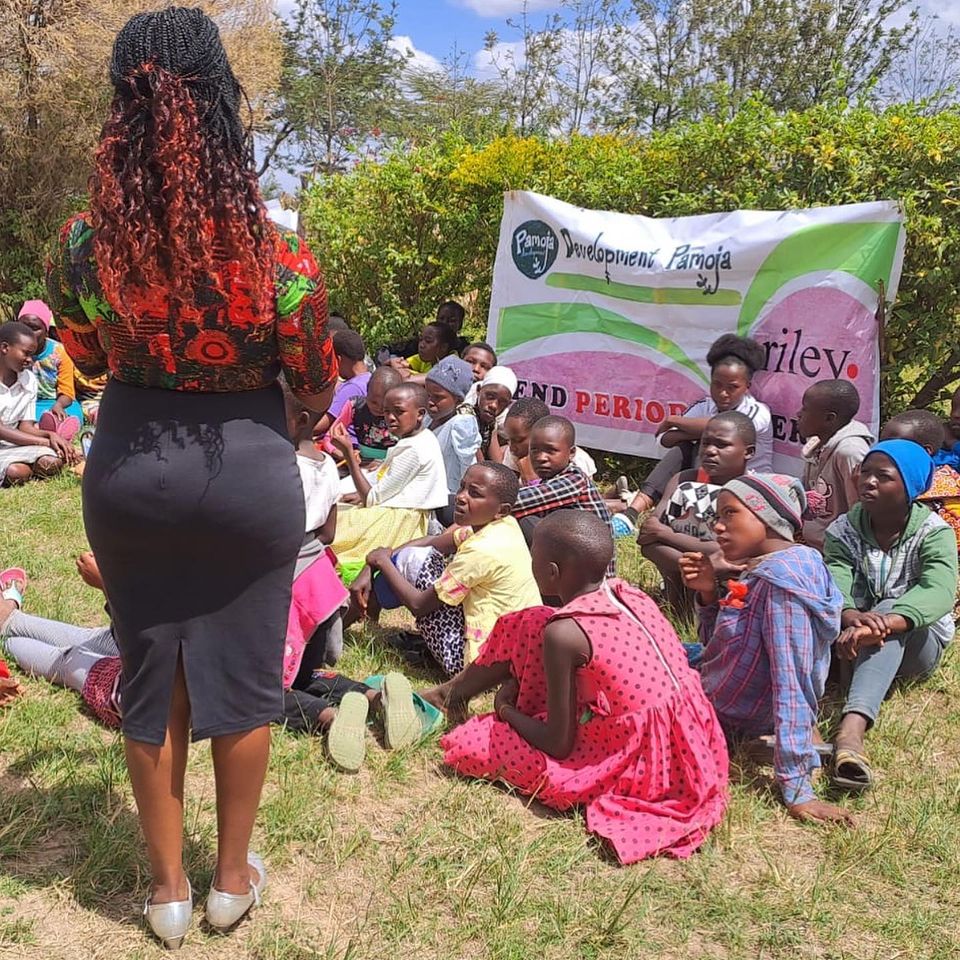
Fiona, one of Riley’s co-founders, witnessed this first-hand in 2019 when she was volunteering in the African country. Fiona spent time working with Development Pamoja, an Irish registered charity, working to responsibly develop disadvantaged communities in rural Kenya. Irishman James Hennessy founded the charity 12 years ago and has been based there ever since. He has built a fantastic team of local Kenyans whose mission it is to help communities become self-sufficient in the long-term. You can read more about Development Pamoja and the work they do here.
Riley is working directly with Development Pamoja to fight period poverty in rural Kenya. It was important to us to team up with a transparent and trustworthy organisation, whereby we can track the direct impact our partnership is having.
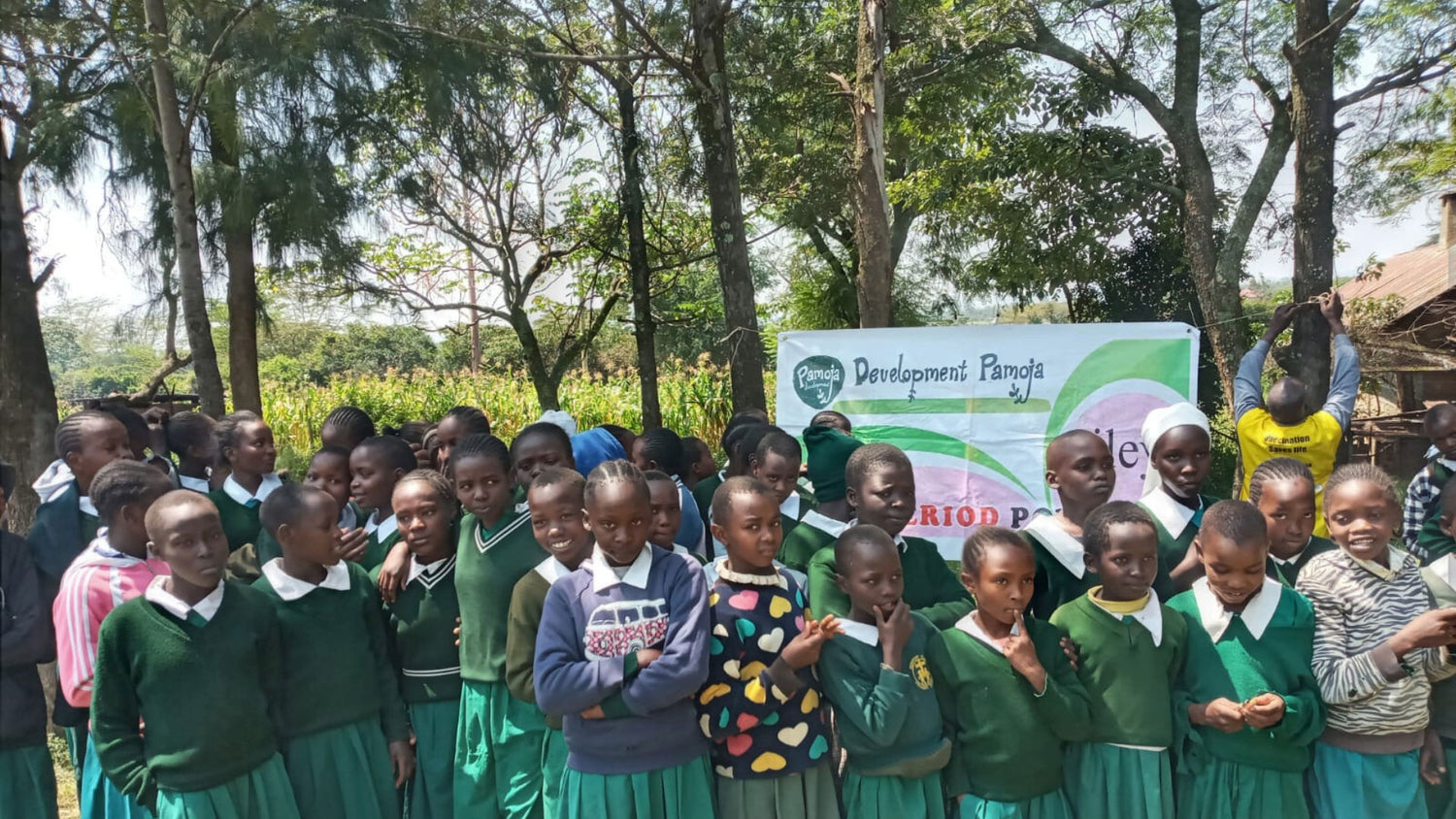
To help keep Kenyan girls in school, our on-the-ground activity is two-fold:
- We are sponsoring a menstruation education programme for school students to demystify the issue and help them manage their periods. Development Pamoja’s resident doctor, Mary, visits local schools each term to host these programmes and answer any questions the girls may have. So far, we’ve helped educate over 4,500 Kenyan students with these programmes.
- We have also committed to supplying sanitary products to these students as well as stocking Development Pamoja’s medical clinics with sanitary products.
2. Positive Period Ireland
Closer to home, we've partnered with Positive Period Ireland, who are on a mission to end period poverty in Ireland by donating feminine hygiene products to those who otherwise would go without.
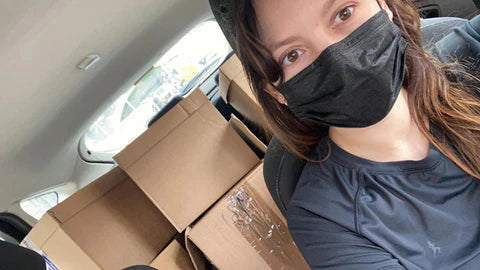
The donations are brought by volunteer drivers to Homeless Outreach Centres, Direct Provision Centres and Women’s Refuges. Positive Period Ireland’s mission is closely aligned with our own here at Riley, making them the perfect partner for us.
Our mission is not only to deliver period products that are better for our body and our planet, but also to completely destigmatise a normal bodily function that more than half the world's population experience and open the conversation around female health. Working with Claire Hunt, CEO of Period Positive Ireland, and her team has been incredibly fulfilling and we’re excited to see how this partnership continues.
3. Bloody Good Period
Our newest charity partner is UK based Bloody Good Period. They’re fighting for menstrual equity and the rights of all people who bleed. They do this in 4 ways:
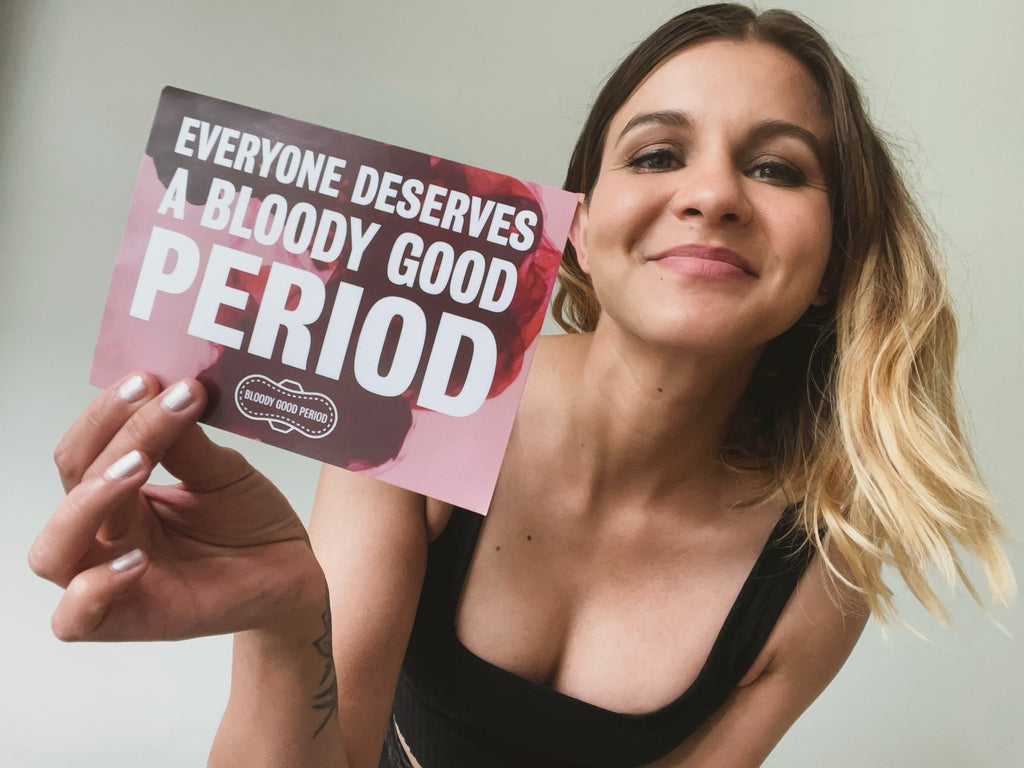
- DELIVER: Providing pads and other period products to those who really need them.
- EDUCATE: Providing menstrual, sexual and reproductive health education for those who can’t otherwise access it.
- NORMALISE: Fighting to eradicate shame and stigma around periods and menstruation through conversation.
- AMPLIFY: Demanding fair treatment for all those who menstruate.
BGP's mission and values are so closely linked with ours which is the reason why we're thrilled to be working with them.
Want To Help Fight Against Period Poverty?
While significant progress has been made, there is still a lot of work to be done. Eradicating period poverty requires sustained commitment and collaboration across sectors. This includes addressing underlying socioeconomic inequalities, advocating for policy reforms, and ensuring that menstrual hygiene products are accessible to all, regardless of income or geography.
We believe this is just the beginning of our contribution to fight period poverty. The more partners we work with, the more resources we will have to fight this battle, both at home and abroad.
Get in touch to request an account today and help us in our mission to make healthier period care accessible to everyone, whenever and wherever they need it.







